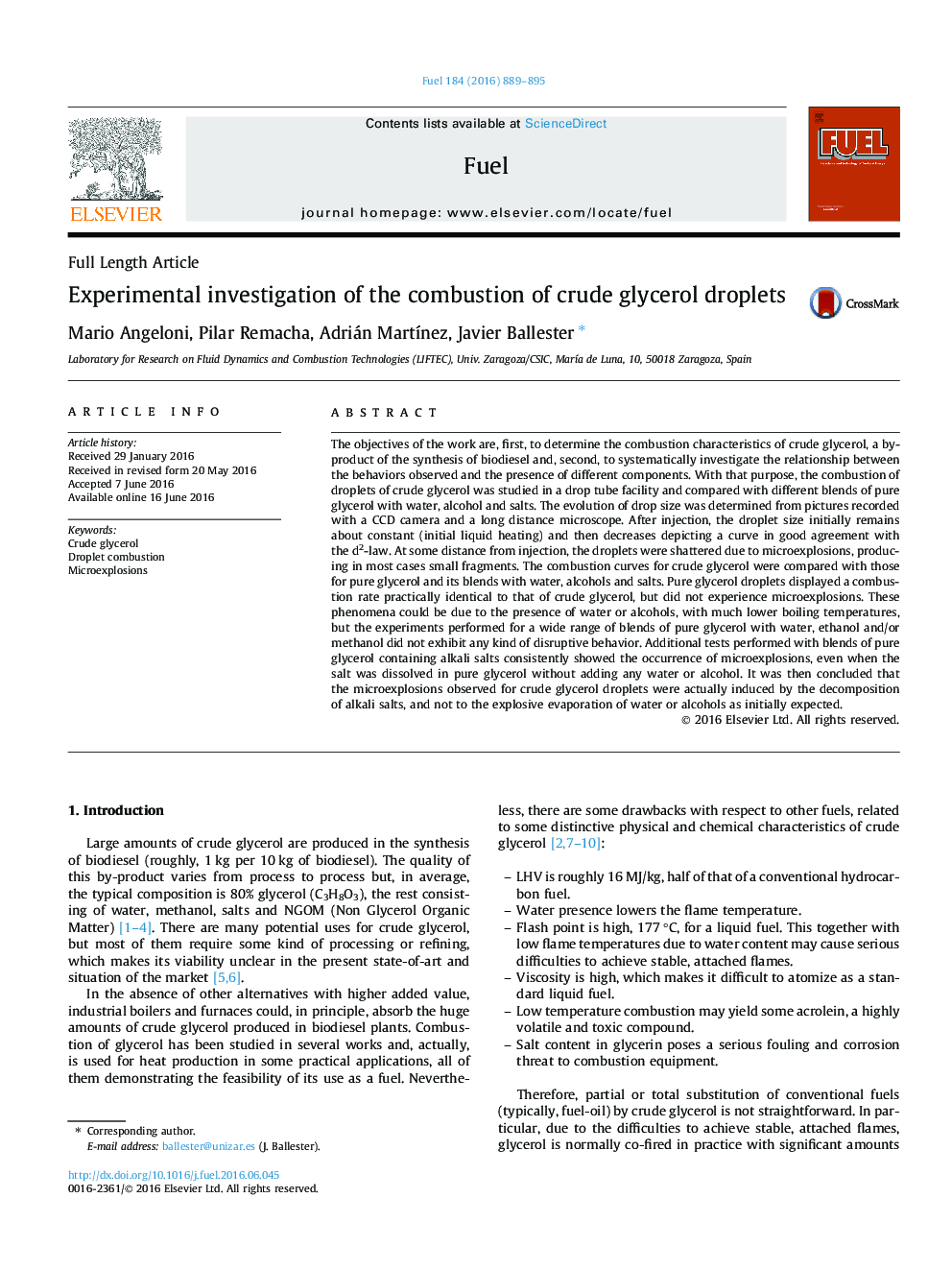| کد مقاله | کد نشریه | سال انتشار | مقاله انگلیسی | نسخه تمام متن |
|---|---|---|---|---|
| 6633186 | 461089 | 2016 | 7 صفحه PDF | دانلود رایگان |
عنوان انگلیسی مقاله ISI
Experimental investigation of the combustion of crude glycerol droplets
ترجمه فارسی عنوان
بررسی تجربی از احتراق قطرات گلیسرول خام
دانلود مقاله + سفارش ترجمه
دانلود مقاله ISI انگلیسی
رایگان برای ایرانیان
موضوعات مرتبط
مهندسی و علوم پایه
مهندسی شیمی
مهندسی شیمی (عمومی)
چکیده انگلیسی
The objectives of the work are, first, to determine the combustion characteristics of crude glycerol, a by-product of the synthesis of biodiesel and, second, to systematically investigate the relationship between the behaviors observed and the presence of different components. With that purpose, the combustion of droplets of crude glycerol was studied in a drop tube facility and compared with different blends of pure glycerol with water, alcohol and salts. The evolution of drop size was determined from pictures recorded with a CCD camera and a long distance microscope. After injection, the droplet size initially remains about constant (initial liquid heating) and then decreases depicting a curve in good agreement with the d2-law. At some distance from injection, the droplets were shattered due to microexplosions, producing in most cases small fragments. The combustion curves for crude glycerol were compared with those for pure glycerol and its blends with water, alcohols and salts. Pure glycerol droplets displayed a combustion rate practically identical to that of crude glycerol, but did not experience microexplosions. These phenomena could be due to the presence of water or alcohols, with much lower boiling temperatures, but the experiments performed for a wide range of blends of pure glycerol with water, ethanol and/or methanol did not exhibit any kind of disruptive behavior. Additional tests performed with blends of pure glycerol containing alkali salts consistently showed the occurrence of microexplosions, even when the salt was dissolved in pure glycerol without adding any water or alcohol. It was then concluded that the microexplosions observed for crude glycerol droplets were actually induced by the decomposition of alkali salts, and not to the explosive evaporation of water or alcohols as initially expected.
ناشر
Database: Elsevier - ScienceDirect (ساینس دایرکت)
Journal: Fuel - Volume 184, 15 November 2016, Pages 889-895
Journal: Fuel - Volume 184, 15 November 2016, Pages 889-895
نویسندگان
Mario Angeloni, Pilar Remacha, Adrián MartÃnez, Javier Ballester,
